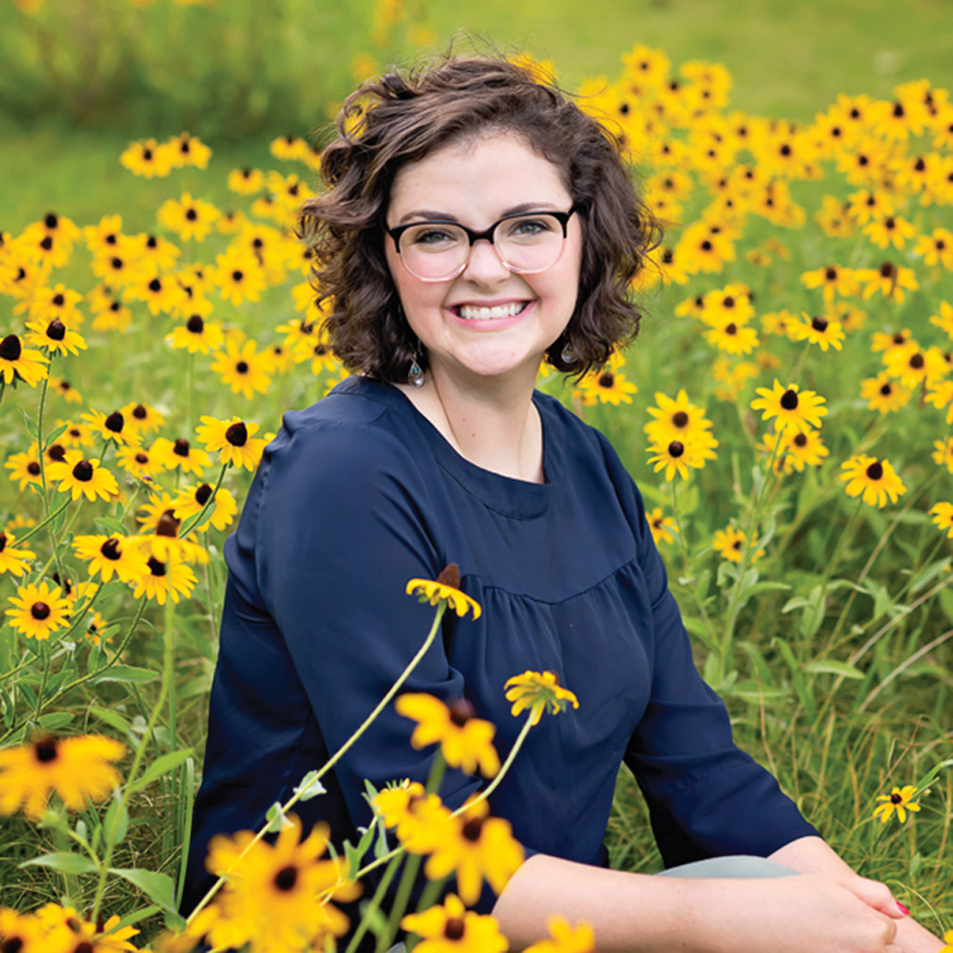By Jonathan Murphy

Brittany Mills Sullivan (’10) was three years old when she was first diagnosed with alveolar soft part sarcoma (ASPS) — a very rare form of cancer. It recurred several times, but because of its placement, which was usually in the lungs, she was always able to have the tumor surgically removed. That was until the most recent recurrence in 2012.
“It was inoperable and terrifying,” Sullivan said.
Sullivan was pregnant when a tumor was found in her heart. Deemed a slow-growing tumor, doctors kept a close eye on it. When it showed growth in her third trimester, Sullivan delivered a healthy baby girl, Carley Jean, six weeks early. Scans showed that the tumor had not spread, meaning no treatment or surgery was necessary at that point.
In 2015, she started a treatment called Sutent in hopes of ridding the cancer completely.
“I took it for eight months, and while I was on that treatment, my cancer spread everywhere,” Sullivan said. “It was technically stage one when I started the medicine and then it became stage four.”
When they discovered that the cancer had spread, Sullivan’s doctor suggested she go to the University of Miami where a clinical trial was about to open that is specifically designed for ASPS. She flew to Miami within the week, and could tell from the outset that the treatment was promising.
“Because of my biology and PA training, I was tracking everything being talked about,” Sullivan said. “I feel like I was able to discern for myself that the science is really solid.”
The physician behind the research was Breelyn Wilky, M.D. She received the Young Investigator Award from the Conquer Cancer Foundation that allowed her to continue her research on rare sarcomas. It eventually resulted in this new clinical trial. Sullivan was the first patient to enroll.
On the initial scans, her cancer had spread to her brain, lungs, liver, spleen, spinal cord, bone and skeletal muscles.
She flew from her home in Nashville, Tennessee, to Miami for treatment every week for three months. After that it was once every three weeks and then once every three months.
“On my three-month scan, it had only gotten a tiny bit smaller,” Sullivan said. “Then, on my six-month scan, about 95 percent of it had disappeared, it melted away. That’s just after six months of treatment.”
Such timing is not lost on Sullivan.
“[Dr. Wilky] was awarded that grant in 2012, which is the year that we found the cancer in my heart while I was pregnant,” Sullivan said. “Our stories line up beautifully.”
“When I had my first occurrence I was turning three and there was nothing,” she continued. “My cancer never spread until there was a treatment available to take care of it. My parents, and so many others, had been praying the whole time, ‘Lord, please just someday let there be a treatment.’ Then there was, at the exact moment I needed it. God did the healing through his timing and his methods and his ways.”
For Sullivan, her own story seemed surreal at times. It was like she was on the outside looking in, letting God work and not getting in the way.
“When you’re pregnant and you find out you have cancer, the only thing to do at that point is totally surrender to God,” she said. “I would wake up in the morning and say, ‘I will show up today, God, and I’m going to need you to do everything else.’ And he did.”
It was during her pregnancy that Sullivan began sharing her story with anyone that would listen. She started a blog called The Sullivan Story that reaches thousands of readers.
“I just felt like this is too big not to share,” she said. “God is doing something, and I don’t know what it is, but people need to know about it. I am healed from my cancer, and that is what I feel compelled to do; tell my story and tell God’s greater story.”
— Jonathan B. Murphy, staff writer